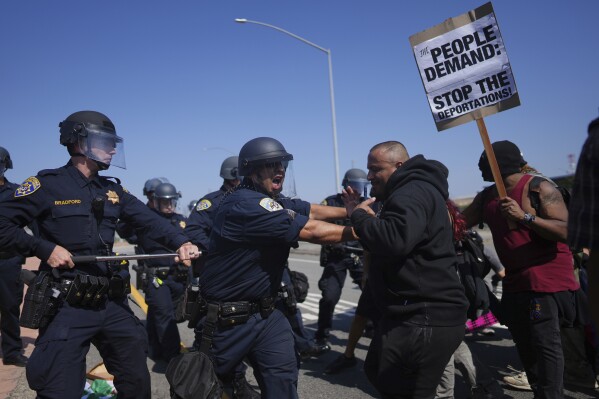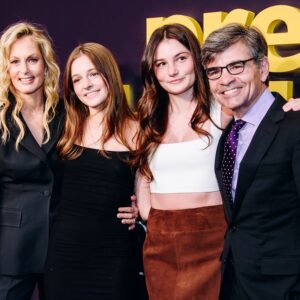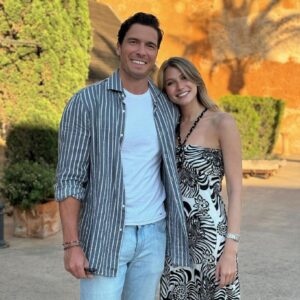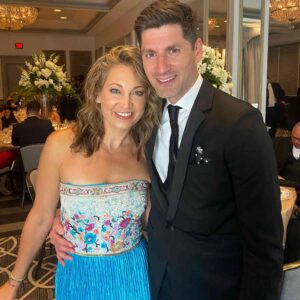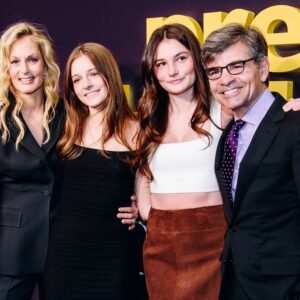The View Hosts Warn of ‘Civil War’ After Trump Sends in National Guard to ‘Attack’ Protesters
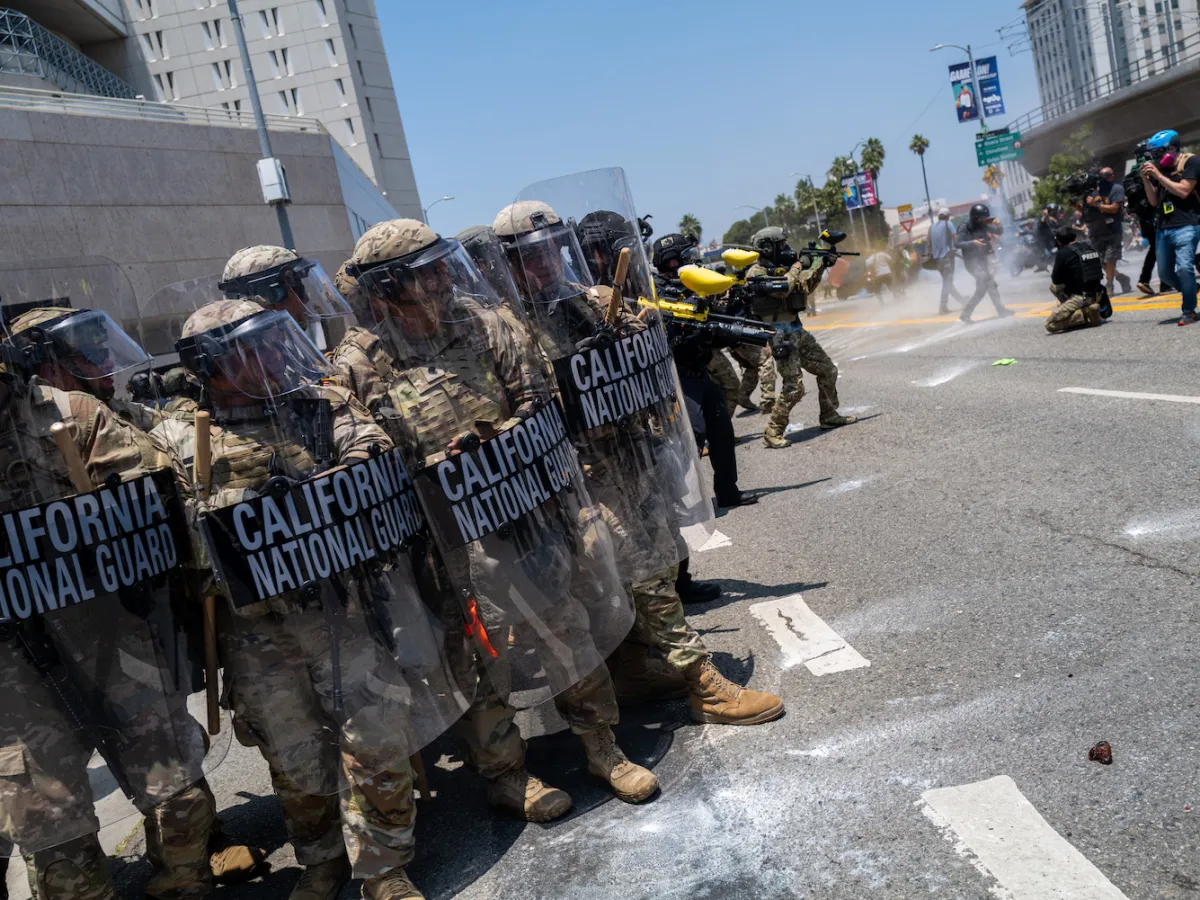
In a recent discussion on ABC’s “The View,” co-hosts Whoopi Goldberg and Sunny Hostin voiced grave concerns regarding President Donald Trump’s controversial decision to deploy the National Guard to Los Angeles amidst rising immigration protests. This dramatic move has prompted debates around its legality and potential repercussions for civil liberties, highlighting tensions that are palpable in America today.
Concerns Over Military Response to Civil Unrest
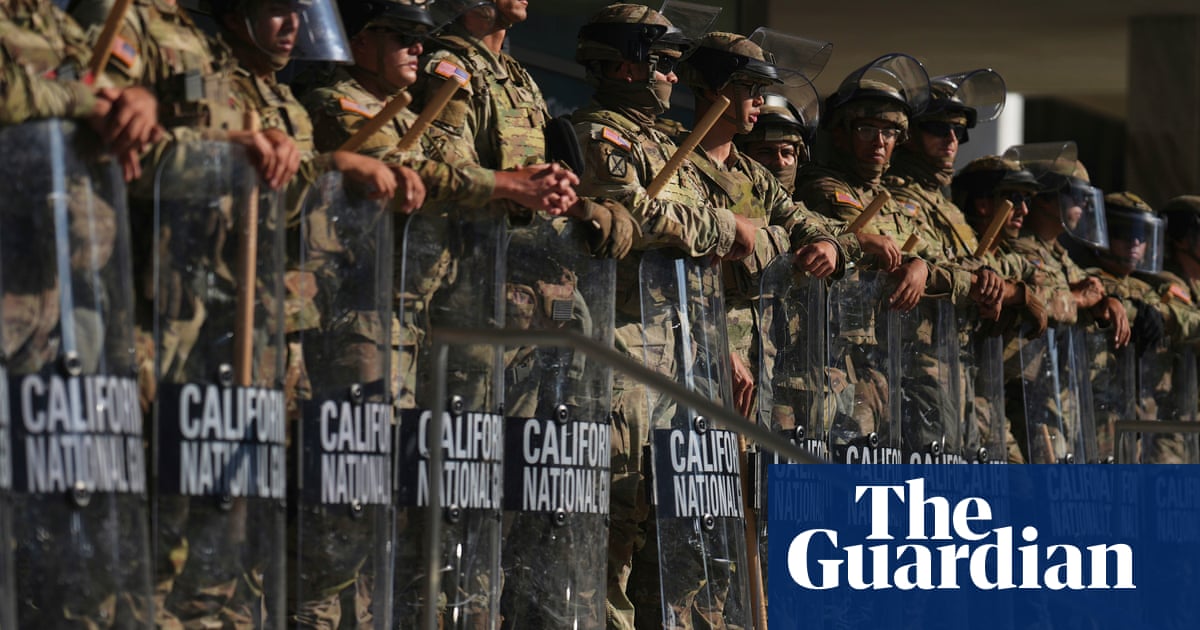
Goldberg opened the segment by questioning the basis for federalizing 2,000 National Guard troops without prior notification to California’s Governor Gavin Newsom. She emphasized the importance of respecting state rights and the need for proper dialogue before military forces are involved in civilian matters. The co-host pointed out that such preemptive actions could escalate an already volatile situation, raising alarms about the growing militarization of local issues.
Hostin quickly followed up, condemning Trump’s decision as a troubling indication of the administration’s tendency towards militarizing civil unrest. She characterized this approach as a dangerous slide toward “fascism,” warning that it could set a precedent for the deployment of military forces against protests in cities across the country. Hostin’s rhetoric painted a dire picture of what could transpire if federal forces are routinely mobilized against American citizens asserting their constitutional rights.
Root Causes of the Protests and Trump’s Defensive Rhetoric
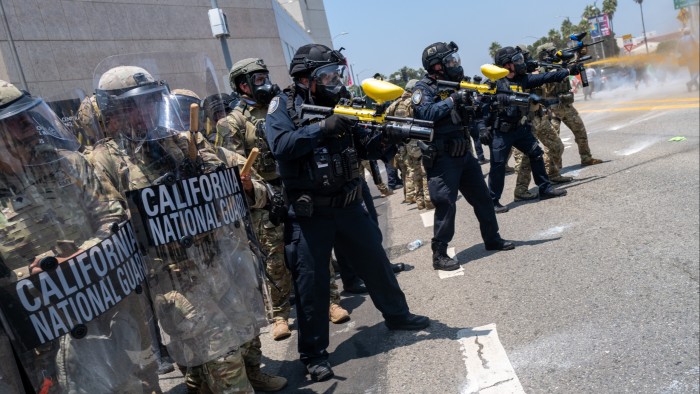
The conversation was spurred by recent protests outside Immigration and Customs Enforcement (ICE) facilities, a response to heightened tensions surrounding immigration policies. Law enforcement’s use of tear gas and resulting arrests have intensified feelings of unrest among demonstrators. In his defense, Trump labeled these protests as “migrant riots,” asserting the necessity to “liberate” Los Angeles from what he claimed was an invasion by illegal immigrants and criminals. This framing has raised alarm bells about the potential for inciting violence and suppressing dissent.
The co-hosts dissected Trump’s remarks, highlighting how the language of “invasion” serves to dehumanize individuals protesting against their treatment at the hands of the government. By categorizing fellow citizens as threats, the administration risks legitimizing aggressive military responses to largely peaceful demonstrations, further polarizing the national dialogue and eroding trust in civic institutions.
Implications for Civil Liberties and the Future of Protests
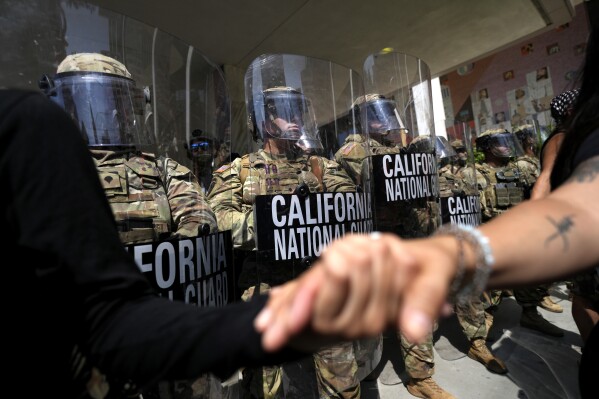
The discussion on “The View” encapsulated the growing unease surrounding civil liberties in the context of heightened governmental authority. Goldberg and Hostin articulated their fears that the deployment of the National Guard could be a foreboding sign of a shift towards authoritarianism. They raised critical questions about the implications for free speech and the right to assemble, both foundational principles in American democracy.
As protests against various systemic injustices continue, the hosts’ analysis underscored a collective apprehension that the normalization of military involvement in civilian affairs could signal troubling times ahead. With a divided political landscape, actions perceived as heavy-handed may provoke further unrest rather than alleviate tensions, potentially leading to a scenario where civil conflict becomes a reality rather than a distant possibility.
The debate highlighted the potential fallout of escalating this cycle of violence: more protests, more military responses, and a society increasingly fractured along partisan lines. With this kind of rhetoric and the actions taken, the looming specter of a civil war feels eerily tangible to those watching the current events unfold.
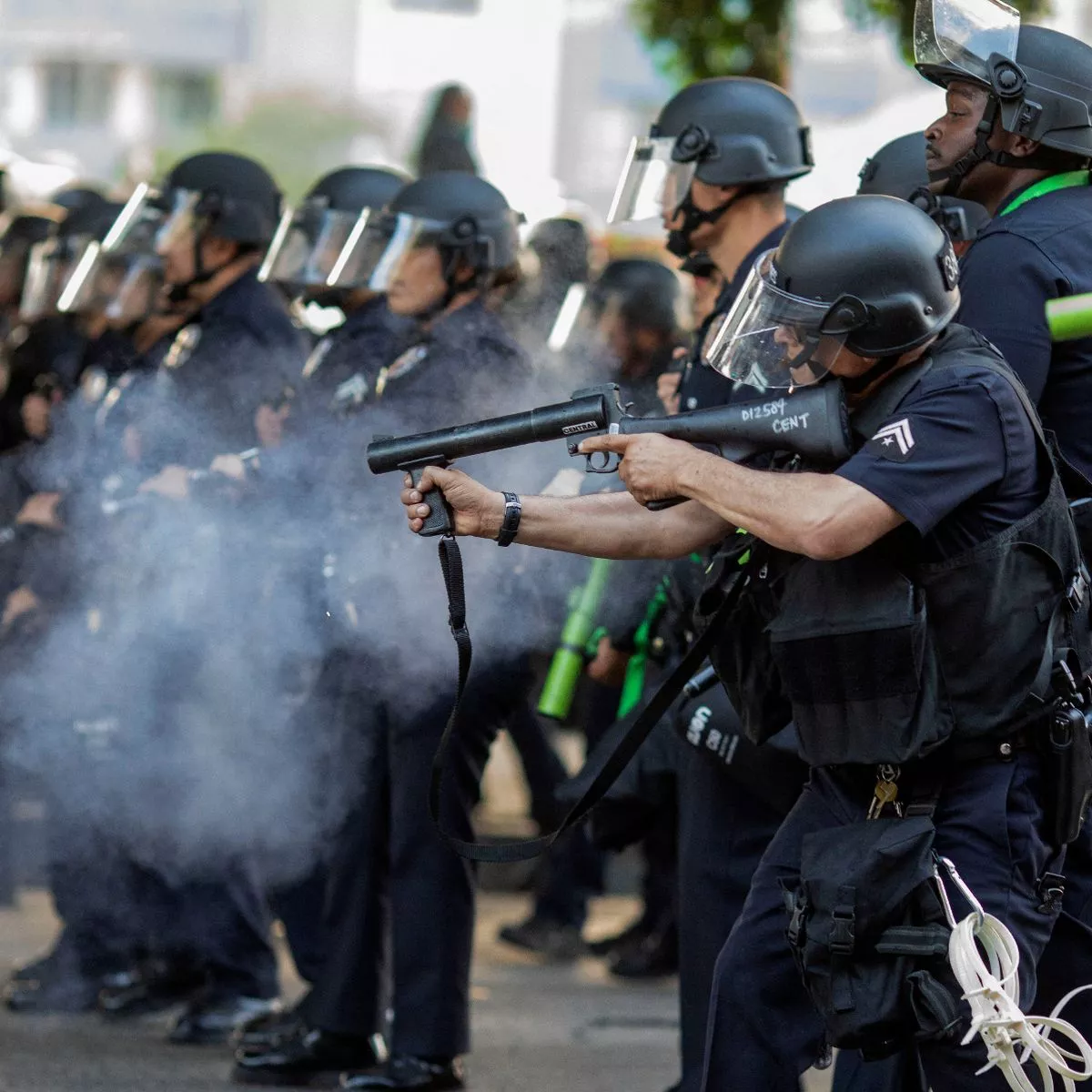
As public opinion continues to evolve, the dialogue surrounding the role of government in managing protests will be crucial in determining the trajectory of civic unrest in the United States. Encouraging engagement in civic matters and dialogue among citizens may be the first steps necessary to avert a future marked by divisions and conflicts.
